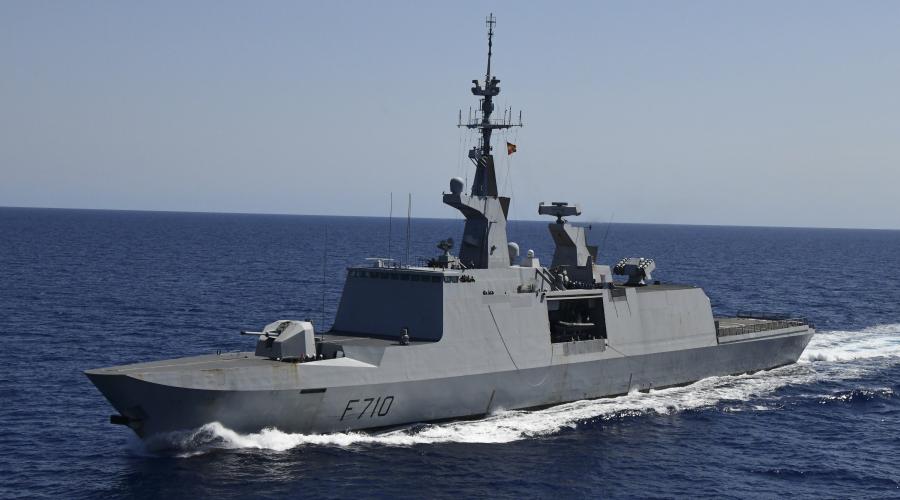La Fayette-class
Summary
| Origin country | 🇫🇷 France |
| Category | Frigate |
| Subtype | Stealth light frigate |
| Manufacturer | DCNS |
| Year commissioned | 1996 |
| Units |
F710 La Fayette F711 Surcouf F712 Courbet F713 Aconit F714 Guépratte |
| Current operators | 🇫🇷 France • 🇸🇦 Saudi Arabia |
Description
The La Fayette-class frigates are a class of steel monohull frigates built by the French shipbuilder DCNS (now Naval Group) and are primarily designed for the French Navy for protection and escort duties. The design of these frigates was aimed at reducing radar cross-section, making them among the first major combatants to incorporate stealth technology, which allows them to reduce the detection range of enemy radar and thus improve survivability.
The origin of the La Fayette-class can be traced back to the early 1980s when the French Navy sought to replace its older escort vessels. The class was named after the French hero of the American War of Independence, Marquis de La Fayette, reflecting the historical ties between France and its allies.
The design of these ships is characterized by their stealth features, which include sloped surfaces and reduced superstructure clutter. These features, combined with the use of radar-absorbent materials, give the class a reduced radar cross-section. The ships also have a distinctive inverted bow, which contributes to their stealth and sea-keeping capabilities. The vessels are equipped with a combined diesel or gas (CODOG) propulsion system, allowing for high speeds in pursuit or interception scenarios and economical cruising on diesel power.
Armament on the La Fayette-class includes a main 100mm naval gun, short-range defense systems such as the 20mm modèle F2 gun, and anti-submarine torpedoes. They also have a helicopter deck and hangar that can accommodate a medium-sized helicopter, significantly enhancing their anti-submarine warfare (ASW) and search and rescue (SAR) capabilities. For electronic warfare, they are equipped with various systems for detection, interception, and jamming. These vessels also have the capacity to launch Exocet anti-ship missiles and Aster surface-to-air missiles, although not all ships in the class are fitted with these systems.
The operational history of the La Fayette-class is marked by a wide range of missions, from escorting aircraft carriers to participating in international task forces combating piracy and drug trafficking. Initially developed for the French Navy, which operates five ships of this class, the design has been adapted and sold to various other countries. Export versions of the La Fayette-class have been constructed for Saudi Arabia (Al Riyadh-class), Singapore (Formidable-class), and Taiwan (Kang Ding-class).
Technical specifications
| Displacement | 3600 tons |
| Range | 7000 km at 12 knots |
| Endurance | 50 days of food |
| Crew | 170 members |
| Width | 15.4 m (50.5 ft) |
| Length | 125.0 m (410.1 ft) |
| Air Park | 1 Eurocopter Panther helicopter |
| Propulsion | 4 SEMT Pielstick 12 PA6 diesel engines with a power of 21,000 hp - 2 propellers |
| Armament | 8 MM-40 (IV 2) + 1 Crotale CN2 (18 missiles) + 1 100mm Mod.68 gun + 2 20mm F2 guns + 1 Panther helicopter |
| Maximum speed | 25 knots |
